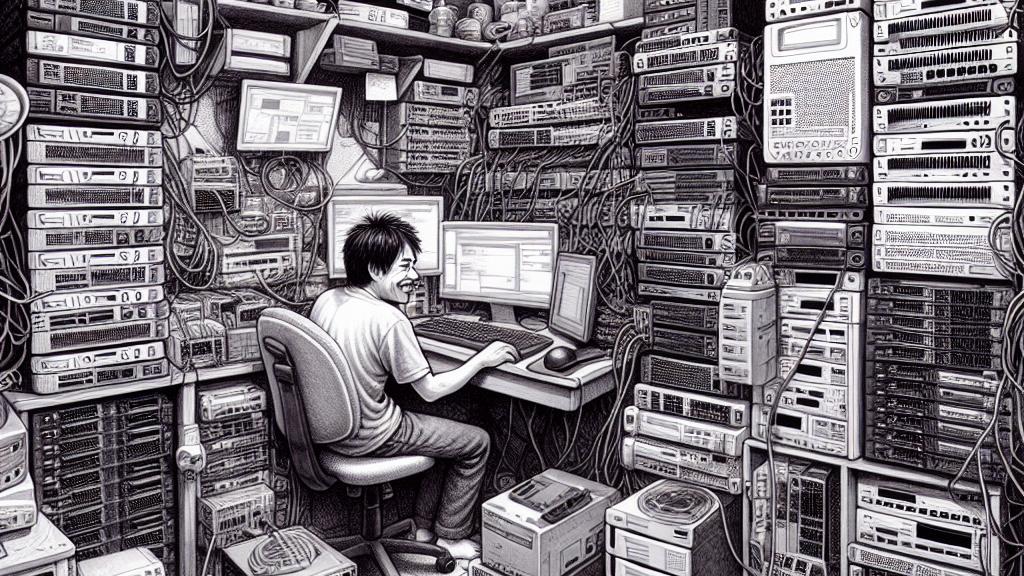Reasons IT Engineers Should Have a Homelab
Overview
- A homelab serves as an essential environment for IT engineers to deepen their knowledge.
- It enhances hands-on skills, promotes troubleshooting, and distinguishes engineers in their careers.
- Investing in a homelab offers rich learning experiences and career growth opportunities.

Understanding the Homelab Concept
In Japan, the trend of establishing a homelab has become a beacon for IT engineers striving for practical knowledge. This creative endeavor involves transforming a corner of one's home into a high-tech laboratory, brimming with servers, routers, and other networking devices. Imagine stepping into a space filled with the hum of machines, where each device represents a unique opportunity to learn and experiment. For instance, an engineer might take pride in configuring a Cisco router or setting up a Fortigate firewall, using these tools to replicate sophisticated networks. Such setups not only facilitate extensive learning but also encourage self-reliance when tackling real-world issues. A personal narrative from an engineer who has invested over two decades in building their own homelab emphasizes that this hands-on approach fosters both technical expertise and personal empowerment.
Benefits of Having a Homelab
The benefits of having a homelab can truly transform an engineer's career in profound ways. Firstly, it provides an unbeatable platform for hands-on learning—think of it as a personalized classroom where mistakes are seen as stepping stones to mastery. For example, by simulating network outages or practicing security breach scenarios, engineers equip themselves with critical skills they can apply in real-time situations. Additionally, owning a homelab cultivates creativity and agility, as engineers experiment with innovative solutions without the fear of affecting live systems. This proactive approach enhances their confidence and allows them to stand out in a competitive job market. Engineers often share success stories where their practical work in a homelab has directly led to a job offer or a promotion, demonstrating its tangible impact on career advancement.
Challenges and Considerations
While the rewards of a homelab are substantial, potential challenges should not be overlooked. An engineer must navigate the realities of financial investment, spatial constraints, and family considerations when setting up a homelab. Picture the excitement of acquiring a new server, only to hear questions from family members about the practicality of such an investment. Moreover, the implications of increased energy consumption and noise from operational devices can lead to concerns at home. Nevertheless, with thoughtful planning and a clear communication strategy with family, these challenges can be managed effectively. Developing a homelab is not just about technical prowess; it’s also about creating a supportive environment for growth. Ultimately, for those passionate about advancing their skills, the long-term benefits—ranging from enhanced troubleshooting abilities to improved job prospects—far outweigh the initial hurdles, making a homelab an invaluable investment for any aspiring IT engineer.

Loading...